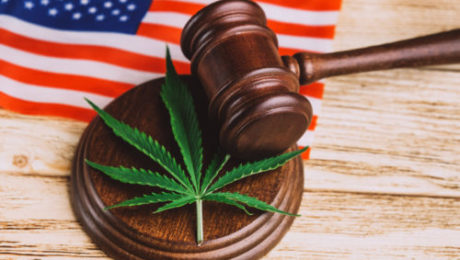These Three Trends Could Have Big Implications for Workers’ Compensation
This article is from RISQ Consulting’s Zywave client portal, a resource available to all RISQ Consulting clients. Please contact your Benefits Consultant or Account Executive for more information or for help setting up your own login.
Legislation surrounding the gig economy, single-payer health insurance and marijuana legalization all have the potential to impact the U.S. workers’ compensation system, according to a National Council on Compensation Insurance (NCCI) report.
Digital platforms such as Uber ushered in a modern gig economy and renewed public discourse on worker classification. Proposals in numerous states would provide criteria for determining whether a worker in the gig economy should be classified as an employee or an independent contractor. For instance, California has a three-part test to determine the status of a worker; lawmakers in Rhode Island and Vermont have considered similar tests. Other states, including Alabama, South Dakota and Washington, have focused on workers using digital platforms.
The NCCI noted that proposals making it more likely for a worker to be classified as an employee would generally benefit an injured worker in the event of a workplace accident. “On the other hand, proposals that would make it more likely for a worker to be considered an independent contractor may reduce costs for employers,” the organization said.
No state has fully adopted a single-payer health insurance system, though several are studying the issue, according to the report. Most proposals that reference workers’ compensation would direct the board of new state single-payer programs to “develop a proposal for coverage of healthcare items and services covered under the workers’ compensation system.”
California, Kansas, New York and Rhode Island considered or are considering such proposals this year. Last year, Washington enacted legislation establishing a new commission to study universal health care, and Oregon extended the life of a previously created task force.
And while marijuana remains illegal at the federal level, numerous states took steps this year toward legalizing marijuana for medical or recreational use.
States are divided on whether to allow, require or prohibit medical marijuana reimbursement in workers’ compensation. State policymakers may need to consider adopting a fee schedule or another mechanism to address reimbursement, the NCCI said. The legalization of recreational marijuana “raises concerns about workplace safety, drug-free workplace issues, and drug testing issues, and may also challenge employers and insurers to provide reimbursement,” according to the report.
Federal legalization would mean insurers may no longer need to worry about conflicts between state and federal law.
“Claims could be reported, and appropriate data could be collected, which would assist in understanding the impact of the use of marijuana in treating workers’ compensation claims,” the NCCI noted. However, it would still be up to states to determine how to address workplace safety, reimbursement and other concerns.
For more articles on workers’ compensation topics, contact RISQ Consulting today.
- Published in Blog
LEGAL UPDATE – House Passes Federal Marijuana Decriminalization Bill (MORE Act)
This article is from RISQ Consulting’s Zywave client portal, a resource available to all RISQ Consulting clients. Please contact your Benefits Consultant or Account Executive for more information or for help setting up your own login.
On April 1, 2022, the U.S. House of Representatives voted 220-204 in favor of decriminalizing marijuana at the federal level.
Although the Marijuana Opportunity Reinvestment and Expungement (MORE) Act is not expected to become law due to lack of support in the Senate, the House vote is significant because it is the second time either chamber of Congress has acted to remove federal prohibitions against marijuana use.
The House previously passed a similar version of the bill on Dec. 4, 2020. While that bill was never brought up in the Senate, the new MORE Act is generally considered more likely to at least reach a vote in that chamber.
The MORE Act
The MORE Act would eliminate all federal criminal penalties related to marijuana by removing it from the federal Controlled Substances Act. It would also expunge virtually all federal marijuana convictions back to 1971, create grant programs, and impose a 5% sales tax on all marijuana products.
Employer Impact
An amendment included in the new bill would require the federal government to conduct a study on how state recreational marijuana laws affect various aspects of the workplace, such as workers’ compensation claims and sick days used.
The MORE Act also includes protections against being denied any federal benefit based on marijuana use or convictions. Otherwise, it does not address marijuana in the context of private employment. Therefore, employers should watch for more information and become familiar with and follow all applicable state and local laws relating to marijuana and employment.
- Published in Blog
Dazed and Confused
By Bailey Penrose, Employer Services Account Manager
Marijuana is becoming a problem, y’all. Not from any philosophical or moral viewpoint (that’s an individual’s point of view and out of my purview) but from an employment standpoint. As it currently stands, 36 US states and 4 US territories have legalized cannabis products for medicinal use; 18 US states, 2 US territories, and the District of Columbia have legalized cannabis products for recreational use. On the flip side, on the federal level the use of cannabis products for either medicinal or recreational purposes is totally illegal.
The divide between state and federal regulation is causing some distinct headaches as employers and individual’s try to understand which standard to follow. We don’t have to look very far to see examples of this. Just look at the headlines from the beginning of July, where athlete Sha’Carri Richardson ran afoul of differing rules:
Guidance is still coming, but I’m afraid it’s going to be a little bumpy as the US feels it’s way through the quagmire. Please see the articles included here for more information on how these regulations realistically apply to employers and their employees.
Weed at Work: Must Employers Accommodate Medical Use?
How Should HR Respond to Federal Marijuana Legalization?
Alaska Drug and Alcohol Testing Laws
Legalized Marijuana and Employment – Off-Duty Use and Drug Testing
- Published in Blog




